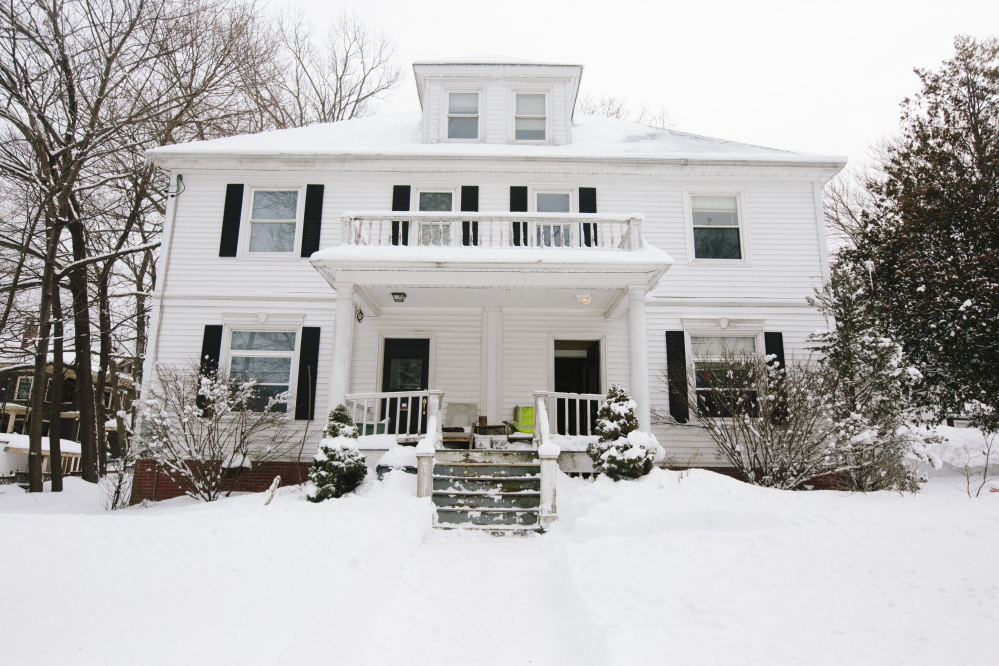Prosecutors expect to meet soon with the attorney for a Portland landlord to discuss a plea deal that could involve criminal charges stemming from the fire in November that killed six young adults at one of his properties.
The attorney for Gregory Nisbet, who owned the two-family building at 20-24 Noyes St. where the fire occurred Nov. 1, said his client will not accept a plea deal that includes a manslaughter charge.
“There is a meeting scheduled with the defense attorney to discuss a plea agreement,” District Attorney Stephanie Anderson said in an email Monday. “If there is no plea agreement, charges will be filed. I can’t give any more information at this time.”
Anderson would not elaborate on what the charges might be or when the decision will be made. She had said in February that prosecutors would consider manslaughter as well as other criminal charges.
Nisbet’s attorney, Matthew Nichols, said Monday that nothing has been decided yet and that he is still negotiating with Deputy Attorney General Lisa Marchese and Anderson about whether Nisbet will face criminal charges.
“If the proposal that the state makes is a plea to a manslaughter charge or manslaughter charges, we definitely will not agree to that proposal,” Nichols said.
By state law, the state Attorney General’s Office handles homicide cases, including manslaughter charges. Anderson’s office would prosecute any lesser offense if charges are brought. The soonest either office could present evidence before a Cumberland County grand jury to seek a criminal indictment would be the beginning of July.
Neither Nichols nor Anderson would say when they planned to meet.
Their statements are unusual during negotiations over potential criminal charges, a reflection of the heightened public interest in the case. The fire was Maine’s deadliest in 40 years.
Ashley Summers, whose husband, Steven Summers, was in the building and later died as a result of severe burns, declined to comment on the advice of her lawyer, Thomas Hallett. Summers, as well as the families of at least three other victims, have filed civil lawsuits against Nisbet.
“I know the families of the victims are pushing pretty strongly for a manslaughter charge to reflect the seriousness of what occurred,” Hallett said. “I hope they do the right thing.”
Affidavits filed in a lawsuit against Nisbet suggest Noyes Street was being run as a rooming house, where residents rented individual rooms from the landlord, and that an emergency exit was impassable. Fire officials also have said that none of the smoke detectors was working at the time.
The email is the first time since February that Anderson has commented publicly on the tragic fire. Investigators believe the fire was caused by smoking materials that were improperly disposed of on the porch. Five people died of smoke inhalation, while Steven Summers managed to escape, only to die days later at a Massachusetts hospital as a result of severe burns.
Anderson took the unusual step of holding a news conference in February after a Portland firefighter said during a public meeting that criminal prosecution was inevitable. At the time, Anderson indicated that it would be a matter of weeks for her office to review a thick binder and six compact discs worth of investigatory material, including interviews, photos and videos.
But the weeks have stretched into months.
“I’m frustrated that it’s taking so long,” Anderson said.
In February, she said potential charges could range from severe, such as involuntary manslaughter, to minor, such as violations of city code.
The plea negotiations come as another one of Nisbet’s properties was purchased in a foreclosure auction Monday. The duplex at 186-188 Dartmouth St. was sold by Portland attorney Samuel Sherry for $288,000.
After the Noyes Street fire, residents at the Dartmouth Street address went public over their concerns about the living conditions in that apartment building. City officials condemned half of the building after it was apparently taken over by squatters and the water pipes burst because of a lack of heat. In March, the building was fixed in accordance with a court order and Nisbet was allowed to resume renting the unit.
City officials believed Dartmouth Street was being operated as a rooming house, which would be a violation of city codes and require more sophisticated alarm systems. Nisbet was ordered to remove locks from individual rooms, clean up trash and debris, ensure smoke detectors were working, and certify that the electrical system was safe.
Staff Writer Scott Dolan contributed to this report.
Send questions/comments to the editors.











Success. Please wait for the page to reload. If the page does not reload within 5 seconds, please refresh the page.
Enter your email and password to access comments.
Hi, to comment on stories you must . This profile is in addition to your subscription and website login.
Already have a commenting profile? .
Invalid username/password.
Please check your email to confirm and complete your registration.
Only subscribers are eligible to post comments. Please subscribe or login first for digital access. Here’s why.
Use the form below to reset your password. When you've submitted your account email, we will send an email with a reset code.